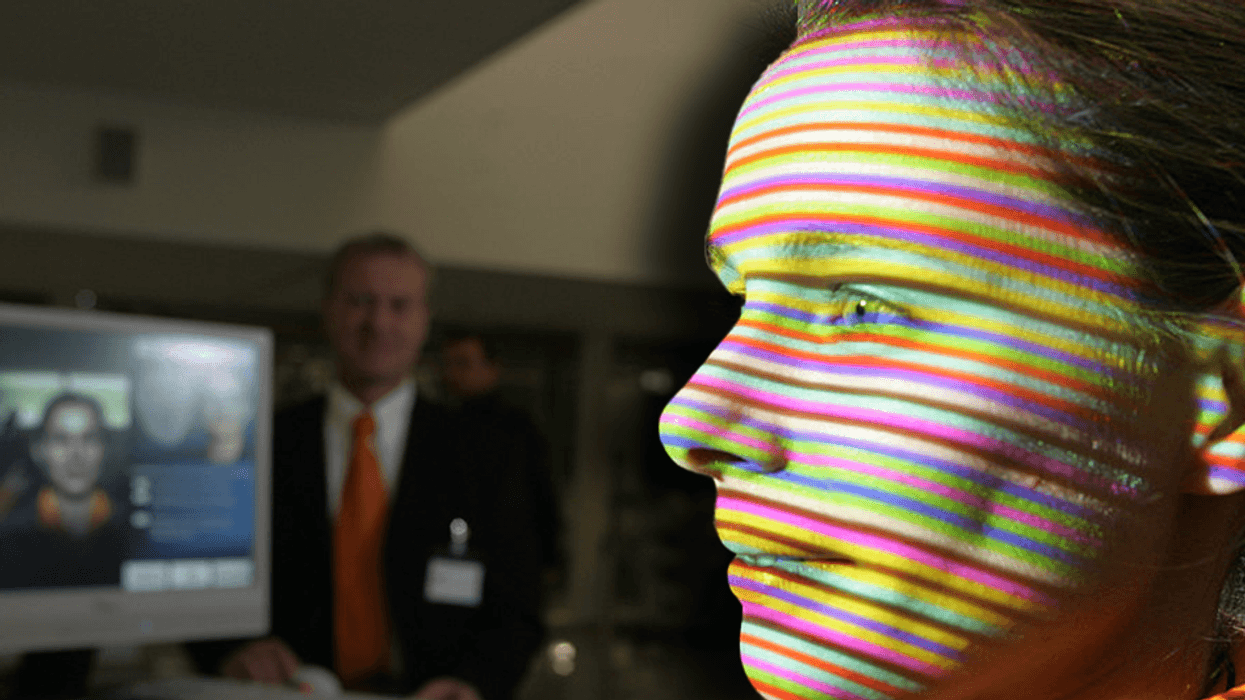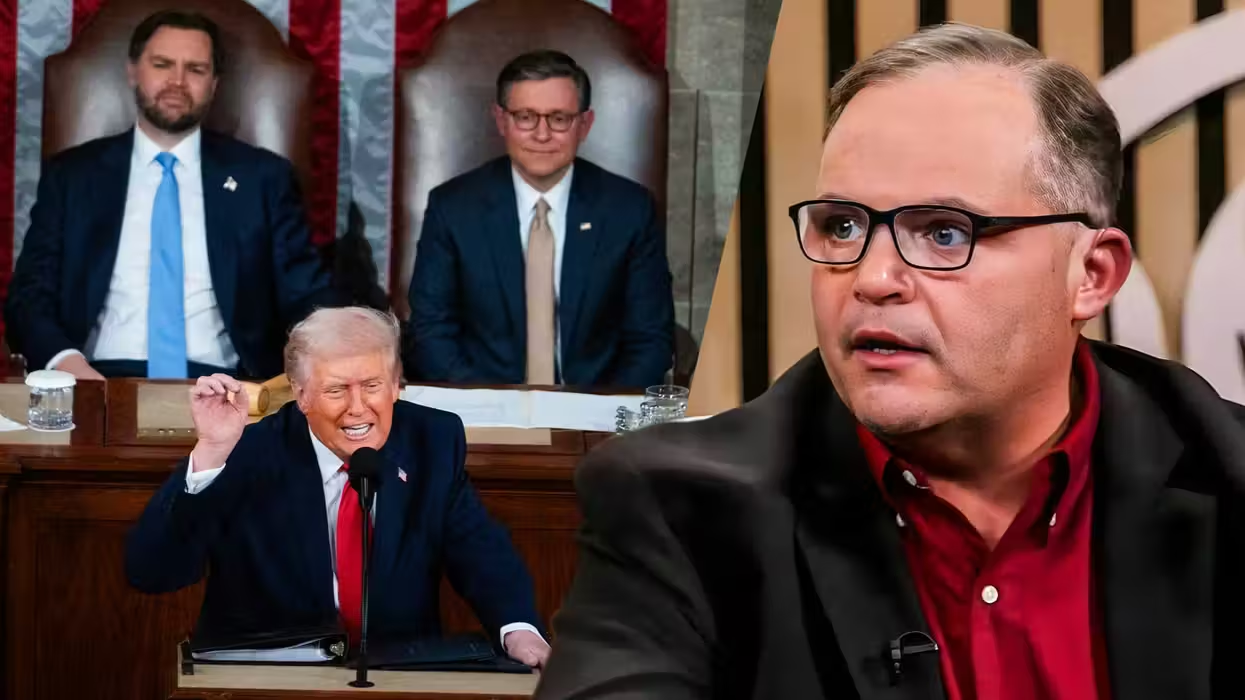
© 2026 Blaze Media LLC. All rights reserved.
When graduates from our liberal-dominated universities started pouring forth, they immediately targeted public schooling as the next area ripe for revolution
 (AP Photo)
(AP Photo)
If you’ve been reading about the so-called Common Core State Standards Initiative, you know that conservatives have already pegged this proposed national curriculum as yet another attempt to define the education of our children in terms of the doctrines of liberalism.
Conservatives are right. But they are, perhaps, wrong about liberals’ motives which are, if understood in a larger historical context, less sinister than they are made out to be (although no less wrongheaded, for all that).
I offer a seemingly liberal explanation—they can’t help it. Liberals think being educated means becoming liberal, moving from darkness to light, and so whenever they undertake education reform, it means redefining education by the lights of liberalism.
How this occurred is rather complicated, but if conservatives want to push back against liberals in regard to education, they’d better know the full story.
The story begins with the takeover of our university system—not in the 1960s but a full century before that. To make a long story short, in the early 1800s, American colleges were defined by Christianity, and in fact, most were defined denominationally. But America had no graduate schools, and therefore those desiring to move up the academic rung had to travel to Europe to earn a Ph.D.
But Europe’s universities, especially those in Germany which were by far the most prestigious, were already given over to radical Enlightenment thought that defined secular liberalism. To be educated at the highest level—and the highest level was defined by these German universities—meant to be liberal.
When these freshly minted Ph.D.’s came back, they were entirely defined, intellectually, by the assumptions and goals of liberalism. They had imbibed two centuries of European liberalism as the “latest” thought—Rousseau, Spinoza, Hegel, D. F. Strauss, Marx, Darwin, Spencer, Comte, etc. They became the first radicals at our universities who believed—firmly, deeply, and all too predictably—that “to be educated” meant “to subscribe to the most radical liberal views.” And they were ready to launch a top-down revolution of benighted American society.
Again, not in the 1960s but beginning just after the 1860s.
They weren’t taking over existing graduate programs. Rather, they became the first faculty of all of America’s newly constructed graduate programs. They were the intellectual elite. They thereby defined what it meant to be educated with almost no resistance.
The first generation of graduate professors spawned a second generation of graduate professors and a new generation of undergraduate professors. The generations continued, second to third, third to fourth, and so on.
Liberalism spread at the top as students of liberal professors became professors to the next generation of students to be liberalized. Liberal Arts thereby became the Art of Becoming Liberal.
Two further “developments” ensured that being educated meant becoming liberal. The first was the consequent takeover of public education by liberalism. Public education in America had been, for some time, rooted in local schools overseen by those intent on young minds being formed by a classical, Christian education—the so-called “Common School” movement.
When graduates from our liberal-dominated universities started pouring forth, they immediately targeted public schooling as the next area ripe for revolution. Liberal elites started taking over the National Education Association (which had originally been Christian) in the early 1880s, and—as you’ve guessed—started a top-down liberal revolution in our public education system. In fact, the push for nationally-controlled education that began in the early 1900s as part of Progressivism was, in large part, understood as a vehicle for the evangelization of liberal views.
Which brings us to a second “development.” It is no accident that liberal Progressives wanted the federal government to pour money into higher education. The flood of federal aid to higher education, beginning with FDR and rising dramatically with LBJ’s Higher Education Act of 1964, ensured that more and more students would go to college. As a result, the number of Americans attending college ballooned accordingly.
That seems like a good thing—until you understand that higher education was, by this time, stoutly liberal. What that endless flow of federal aid paid for, and still pays for, is the transformation of young minds under the mentorship of the liberal intellectual elite.
It really was, and is, a conspiracy. Think of the obvious: the union of enormous federal money for higher education and a liberal elite ensconced at the universities. The result is that, whatever students may happen to go into college believing, they come out liberals.
That’s why liberals truly, sincerely believe that the more education you get, the more liberal you’ll be.
That’s why liberals proudly brag about the correlation between having liberal views and having advanced degrees.
That’s why they can’t help but think that reforming education means one and only one thing—making it liberal.
Benjamin Wiker, Ph.D. has published eleven books, his newest being "Worshipping the State: How Liberalism Became Our State Religion."
Want to leave a tip?
We answer to you. Help keep our content free of advertisers and big tech censorship by leaving a tip today.
Want to join the conversation?
Already a subscriber?
more stories
Sign up for the Blaze newsletter
By signing up, you agree to our Privacy Policy and Terms of Use, and agree to receive content that may sometimes include advertisements. You may opt out at any time.
Related Content
© 2026 Blaze Media LLC. All rights reserved.
Get the stories that matter most delivered directly to your inbox.
By signing up, you agree to our Privacy Policy and Terms of Use, and agree to receive content that may sometimes include advertisements. You may opt out at any time.






